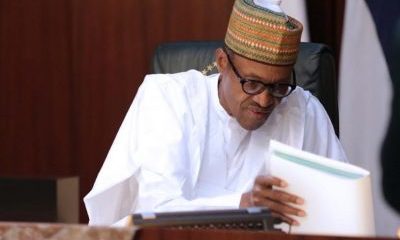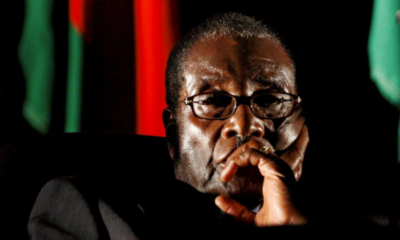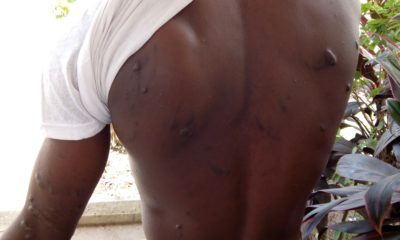WORLD NEWS
Special Report: ‘Treacherous Shenanigans’ – The Inside Story Of Mugabe’s Downfall
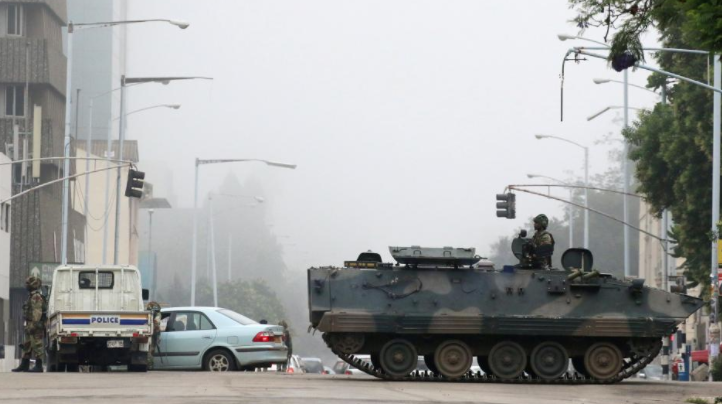
HARARE (Reuters) – Inside State House in Harare, Robert Mugabe was in the tightest spot of his 37-year rule. Tanks were on the streets and troops had occupied the state broadcaster, from where the army had announced it had taken control of Zimbabwe.
Mugabe, 93 years old but still alert, remained defiant. The only leader the country had known since independence was refusing to quit.
At a tense meeting with his military top brass on Nov. 16, the world’s oldest head of state put his foot down: “Bring me the constitution and tell me what it says,” he ordered military chief Constantino Chiwenga, according to two sources present.
An aide brought a copy of the constitution, which lays out that the president is commander-in-chief of the armed forces.
Chiwenga, dressed in camouflage fatigues, hesitated before replying that Zimbabwe was facing a national crisis that demanded military intervention.
Mugabe retorted that the army was the problem, according to the sources present. Then the beleaguered president indicated that perhaps they could find a solution together.
The meeting marked the start of an extraordinary five-day standoff between Mugabe and Zimbabwe’s supreme law on one side, and the military, his party and Zimbabwe’s people on the other.
The generals wanted Mugabe to go, but they also wanted a peaceful “coup,” one that would not irreparably tarnish the administration aiming to take over, according to multiple military and political sources.
The president finally accepted defeat only after he was sacked by his own ZANU-PF party and faced the ignominy of impeachment. He signed a short letter of resignation to parliament speaker Jacob Mudenda that was read out to lawmakers on Nov. 21.
Mugabe, who had run Zimbabwe since 1980 and overseen its descent into economic ruin while his wife shopped for luxury goods, was gone.
The country erupted into ecstasy. Parliamentarians danced and people poured onto the streets in their tens of thousands to celebrate a political downfall that sent shockwaves across Africa and the world.
Reuters has pieced together the events leading up to Mugabe’s removal, showing that the army’s action was the culmination of months of planning that stretched from Harare to Johannesburg to Beijing.
BITTER RIVALRY
Drawing on a trove of intelligence documents from within Mugabe’s feared Central Intelligence Organization (CIO), Reuters reported in September that the army was backing Emmerson Mnangagwa, then vice president, to succeed Mugabe when the time came.
The report detailed how Mnangagwa, a lifelong friend and former security chief of Mugabe, might cooperate with Mugabe’s political foes in order to revive the economy. It caused furore in Zimbabwe’s media and political circles.
Bitter rivalry intensified between Mnangagwa and Grace, Mugabe’s 52-year-old wife, who also hoped to take over as president and had the backing of a ZANU-PF faction known as G40.
In early October, Mnangagwa said he had been airlifted to hospital in South Africa after a poisoning attempt in August. He pointed no fingers – but he didn’t need to.
Grace’s swift response was to deny it and accuse her rival of seeking sympathy; she belittled him as nothing but an employee of her husband, according to a report in the state-run Herald newspaper.
As the pressure built, Mugabe became increasingly paranoid about the loyalty of army chief Chiwenga, a career soldier and decorated veteran of Zimbabwe’s 1970s bush-war against white-minority rule.
Mugabe’s spies, who permeated every institution and section of society in Zimbabwe, were warning him the military would not accept Grace as president.
“Mugabe is very worried of a coup,” one intelligence report, dated Oct. 23, said. “Mugabe was openly told by senior CIOs that the military is not going to easily accept the appointment of Grace. He was warned to be ready for civil war.”
Reuters reviewed the document, and hundreds of other intelligence reports dating back to 2009, before the coup took place. The documents come from within the CIO, but Reuters could not determine for whom they were written. The CIO is split into factions, some pro- and some anti-Mugabe.
In late October, Mugabe summoned Chiwenga to a showdown, according to another of the documents, dated Oct. 30. It said Mugabe confronted the army chief about his ties to Mnangagwa and told him that going against Grace would cost him his life.
“Chiwenga was warned by Mugabe that it is high time for him to start following. He mentioned to Chiwenga that those fighting his wife are bound to die a painful death,” the intelligence report said.
At the same meeting, Mugabe also ordered Chiwenga to pledge allegiance to Grace. He refused.
“Chiwengwa refused to be intimidated. He stood his ground over his loyalty to Mnangagwa,” the report said.
Reuters put questions about this exchange and other aspects of this article to Mugabe’s spokesman, George Charamba. In an enigmatic text message dated Nov. 23, he replied: “Enjoy Reuters copy. Goodnight.”
Two spokesmen for Chiwenga declined to comment.
After another tense meeting with Mugabe on Nov. 5, Chiwenga left Harare on a pre-arranged official trip and traveled to China, which wields significant influence as a major investor in Zimbabwe.
A day later, Mugabe sacked Mnangagwa as vice president and purged him from ZANU-PF, the liberation movement that Mnangagwa had served since his youth and for which, as a young militant caught bombing a train, he had nearly been executed.
For the generals, Mugabe had gone too far. The military immediately activated a “Code Red” alert, its highest level of preparedness, a military source said.
ASSASSINATION PLOT
Moments after Mnangagwa was ousted on Nov. 6, the security details assigned to him and his house were withdrawn, according to a statement he issued later. He was told his life was in danger.
“Security personnel, who are friendly to me, warned me that plans were underfoot to eliminate me once arrested and taken to a police station,” Mnangagwa said in a Nov. 21 statement. “It was in my security interest to leave the country immediately.”
From Harare, he managed to escape over the border into neighboring Mozambique, where he caught a plane to China, according to one source familiar with his movements. There he met up with Chiwenga, the source said.
Reuters could not confirm the account; but an intelligence report from Nov. 13 indicates that Mugabe suspected some of his generals of preparing to overthrow him from China.
“A number of generals are now in China ready to plot Mugabe’s ouster with Mnangagwa,” the report said. It was not clear which generals, and whether their travel to China was authorized.
Mugabe’s spies suspected old allies had turned against the aging president. An intelligence report, dated Oct. 30, said Beijing and Moscow both supported regime change out of frustration at Zimbabwe’s economic implosion under Mugabe.
“China and Russia are after change,” the report said. “They are after change within ZANU-PF as they are sick and tired of Mugabe’s leadership.”
“The two countries are even ready to clandestinely supply arms of war to Mnangagwa to fight Mugabe.”
Neither China’s Defense Ministry nor Foreign Ministry responded to a request for comment. The Foreign Ministry had previously said Chiwenga’s visit was “a normal military exchange mutually agreed upon by China and Zimbabwe.”
Reuters sent written requests for comment to the Kremlin, the Russian Defense Ministry and the Russian Foreign Ministry. None of them responded.
China has long taken an interest in Zimbabwe, having supported Mugabe’s forces during the liberation struggle. After independence it developed connections there in mining, security and construction.
 Russia has also had ties to Zimbabwe since the early 1980s, and in 2014 a Russian consortium entered into a partnership to develop a $3 billion platinum mining project in the country.
Russia has also had ties to Zimbabwe since the early 1980s, and in 2014 a Russian consortium entered into a partnership to develop a $3 billion platinum mining project in the country.
Chiwenga’s trip to China culminated in him meeting Chinese Defense Minister Chang Wanquan in Beijing on Nov. 10.
Two sources with knowledge of the talks told Reuters that Chiwenga asked if China would agree not to interfere if he took temporary control in Zimbabwe to remove Mugabe from power. Chang assured him Beijing would not get involved and the two also discussed tactics that might be employed during the de facto coup, the sources said.
Reuters could not establish whether Mnangagwa met Chang.
Having got wind of the talks in China, Mugabe summoned his still-loyal police commissioner, Augustine Chihuri, and his deputy, Innocent Matibiri, to detain Chiwenga on his return to Harare, government and security sources said.
The pair assembled a squad of 100 police and intelligence agents. But the plot leaked and Chiwenga supporters managed to pull together a counter-team of several hundred special forces soldiers and agents as their commander’s plane approached.
Some were disguised as baggage handlers, their military fatigues and weapons hidden beneath high-visibility jackets and overalls, one security source said.
Realizing they were outnumbered and outgunned, Chihuri’s police team backed down, allowing Chiwenga to touch down without incident, the security source said.
Mugabe’s spokesman did not comment on the incident.
“VERY ALARMED”
Two days later, Chiwenga and a group of military commanders demanded a meeting with Mugabe at his official State House residence in Harare, an ornate colonial villa complete with stuffed leopards and thick red carpets, according to a government source.
They said they were “very alarmed” at the firing of Mnangagwa and told Mugabe to rein in his wife and her G40 faction, whom they accused of trying to divide the military, according to the government official, who was present at the discussions.
“What do you think should be done?” Mugabe demanded of the soldiers as he sat slumped in an armchair.
The generals asked him to give assurances that they too would not be purged. Mugabe’s response was lukewarm, the government source said. Chiwenga told Mugabe he would be making his concerns about the G40 faction public.
Hours later, Chiwenga summoned reporters to the military’s main barracks near Harare to issue a statement.
“We must remind those behind the current treacherous shenanigans that, when it comes to matters of protecting our revolution, the military will not hesitate to step in,” he said, reading from a prepared text.
The following afternoon, Reuters reported six armored personnel carriers heading towards the headquarters of Mugabe’s Presidential Guard on the outskirts of Harare. It was unclear whose command they were under.
At the time, the city’s residents were on edge but still unsure what it all meant.
THE LINE WENT DEAD
At around 6 p.m. on Nov. 14, Mugabe’s motorcade headed to his private “Blue Roof” residence, a heavily fortified compound in the capital’s leafy northern suburb of Borrowdale.
Meanwhile, social media buzzed with pictures of armored vehicles driving along roads to Harare, sparking frenzied speculation about a coup.
Increasingly concerned, Grace put in a call shortly after 7 p.m. to a cabinet minister asking to get WhatsApp and Twitter shut down, according to one source familiar with a recording of the conversation.
The minister, whose identity Reuters is withholding for safety reasons, replied that such a move was the responsibility of state security minister Kembo Mohadi.
“No-one will stand for a coup. It cannot happen,” said Grace, commonly referred to as Amai, which means Mother, according to a source who heard the recording.
Mugabe’s voice is then heard on the line: “As you have heard from Amai, is there anything that can be done?”
The minister gave the same response, about the responsibilities of state security, and the line went dead, the source said.
Mohadi declined to comment.
Two hours later, two armored vehicles rolled into the Pockets Hill headquarters of the Zimbabwe Broadcasting Corporation (ZBC), according to ZBC sources.
Dozens of soldiers sealed off the site and stormed into the studios where they accosted staff, snatching their phones and halting programs. State-owned ZBC, widely seen as a mouthpiece for Mugabe, switched to broadcasting pop music videos.
Information Minister Simon Khaya Moyo called Defense Minister Sydney Sekeramayi to ask if he had any information about a possible coup. Sekeramayi said no, but tried to check with military chief Chiwenga.
Chiwenga told Sekeramayi he would get back to him. According to the sources, Chiwenga never did.
Moyo remains in hiding and was unavailable for comment. Sekeramayi declined to comment.
SECURITY DETAIL
As ministers in the G40 faction tried frantically to work out what was going on, Chiwenga’s men closed in on Mugabe’s compound.
According to a source briefed on the situation, Albert Ngulube, a CIO director and head of Mugabe’s security detail, was driving home around 9.30 p.m. after visiting Mugabe. He met an armored car on Borrowdale Brooke, a side road leading to Mugabe’s house.
When Ngulube confronted the soldiers and threatened to shoot them, they beat him up and detained him, the source said. Ngulube was later released, but had suffered head and facial injuries, the source added.
Spokesmen for Chiwenga and Mnangagwa declined to comment. Reuters was unable to contact Ngulube.
Other G40 ministers were also picked up by soldiers. Finance minister Ignatius Chombo was found hiding in a toilet at his house and beaten before being detained at an undisclosed location for more than a week.
On his release on Nov. 24, he was hospitalized with injuries to his hands, legs and back, his lawyer told Reuters, describing the army’s behavior as “brutal and draconian.”
Soldiers used explosives to blow the front door off the house of Jonathan Moyo, the main brains behind G40, according to video footage of the house seen by Reuters. Others burst through the front gates of the residence of local government minister Saviour Kasukuwere, another key Grace supporter.
Both men managed to escape to Mugabe’s residence. Contacted by Reuters shortly after midnight in the early hours of Nov. 15, Kasukuwere was audibly stressed. “I can’t talk. I‘m in a meeting,” he said, before hanging up.
For another week, Mugabe clung on to the presidency as Chiwenga and his forces tried to engineer a peaceful, and quasi-legal, exit for the long-serving leader.
But as parliament began impeachment proceedings on Nov. 21, Mugabe finally gave up. After 37 years in control, during which much of his country fell into poverty, his letter of resignation said he was stepping down out of “concern for the welfare of the people of Zimbabwe.”
Reported by MacDonald Dzirutwe, Joe Brock and Ed Cropley; Additional reporting by Cris Chinaka in HARARE, Michael Martina in BEIJING and Jack Stubbs in MOSCOW; Editing by Richard Woods and Mike Collett-White
Sourced From: Reuters: World News

WORLD NEWS
Singapore Reports 931 New Coronavirus Cases, Taking Total To 13,624
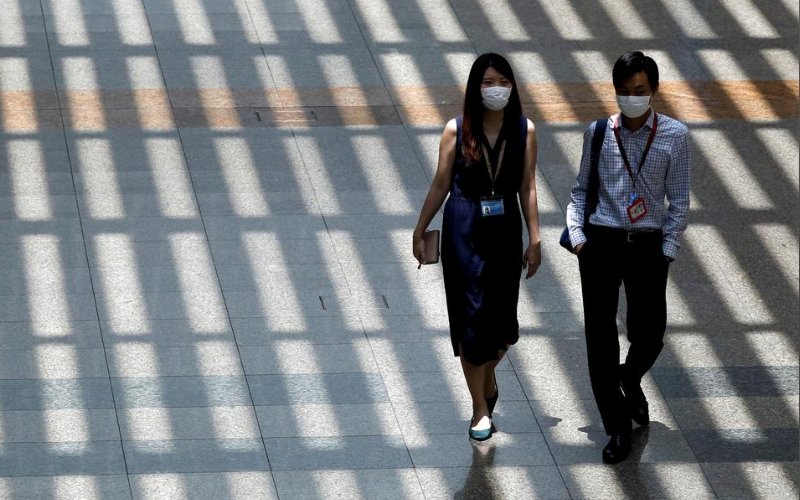
Singapore registered 931 new coronavirus infections, its health ministry said on Sunday, taking the city-state’s total number of COVID-19 cases to 13,624.
The vast majority of the new cases are migrant workers living in dormitories, the health ministry said in the statement. Fifteen of the new cases are permanent residents.
The number of new cases rose from 618 reported on Saturday.
The tiny country of 5.7 million people now has one of the highest infection rates in Asia, according to official figures, due to outbreaks in cramped dormitories housing over 300,000 mainly South Asian workers.
Sourced From: Reuters: World News
WORLD NEWS
Spain’s Kids Prepare For Freedom After Six-Week Lockdown

Spain released guidelines on Saturday allowing children to go outside after six weeks living under one of Europe’s strictest lockdowns, as figures showed a daily coronavirus death toll of 378, up slightly on Friday’s 367, the lowest in the past month.
The total of fatalities rose to 22,902 and Spain’s Health Ministry said the overall number of coronavirus cases rose to 223,759 from 219,764 the day before.
Yet Spain sees enough evidence of the virus being under control to start easing its lockdown. Children were trying out their masks in anticipation of their first taste of fresh air since Prime Minister Pedro Sanchez declared a state of emergency on March 14.
The government said under 14s will from Sunday be allowed up to one hour of supervised outdoor activity per day between 9am and 9pm, staying within one kilometre of their home.
Adults can accompany up to three children, who will not be allowed to use playparks and must adhere to social distancing guidelines, remaining at least two metres from other people.
The government has not yet said when confinement measures will be eased for older children.
In Pineda de Mar, northeast Spain, volunteer seamstresses were hard at work making face masks for children ahead of the deconfinement measure.
“More than 100 people are making protective equipment,” the town’s mayor Xavier Amor told Reuters. “We started with masks and then we followed the demand of hospitals, health centres, and nursing homes.”
As bars and restaurants eye a gradual reopening one company is devising safety measures to encourage wary clients to return.
Leganes-based LlenaTuBar, whose name translates as fill up your bar, is fitting dining tables with clear plastic screens to protect customers and installing thermal cameras to detect any patrons with a fever.
“It’s a critical situation for the hospitality sector and if we’re locked down much longer, people will struggle to reopen their businesses,” owner Manuel Gil told Reuters.
As the economic fallout from the virus continues to build, Prime Minister Pedro Sanchez reiterated calls for a pan-European response.
“The depth of the economic downturn and the risk that its effects will persist after the health emergency requires that a foundation be laid for a rapid, balanced, environmentally sustainable and socially just recovery,” Sanchez wrote in a piece for newspaper Expansion on Saturday.
The Health Ministry on Friday changed the methodology for logging cases of the virus. It will no longer count antibody tests and will only include positive results from PCR tests.
Discounting antibody tests puts Saturday’s total number of cases at 205,905 and Friday’s at 202,990.
Sourced From: Reuters: World News
WORLD NEWS
Putin Exploits Coronavirus To Justify Centralized Russian Power
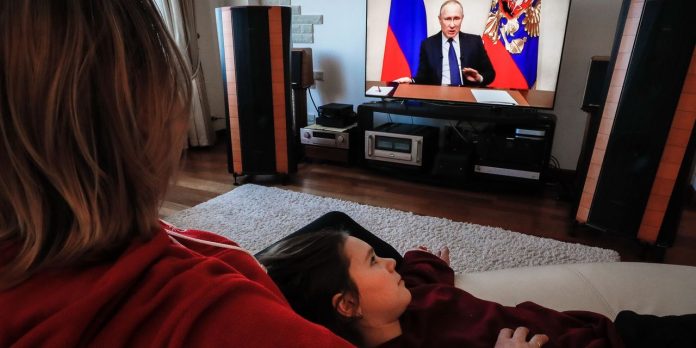
MOSCOW —The coronavirus pandemic has given Russian President Vladimir Putin a fresh opportunity to drive home for worried Russians a recurring theme of his long reign: Western liberal democracies are weak, globalism is fragile and the Russian model of centralizing power in a strong leader is superior in times of crisis.
Throughout much of the pandemic, the Kremlin leader has sought to project strength and calm, assuring his people that the spread of the new coronavirus is under control in Russia, even as it has killed 14,000 and likely more.
Sourced From: NewsPrime.Org
Tribune
Bill Gates Spends $200m On Toilet Turning Human Waste To Fertilizer
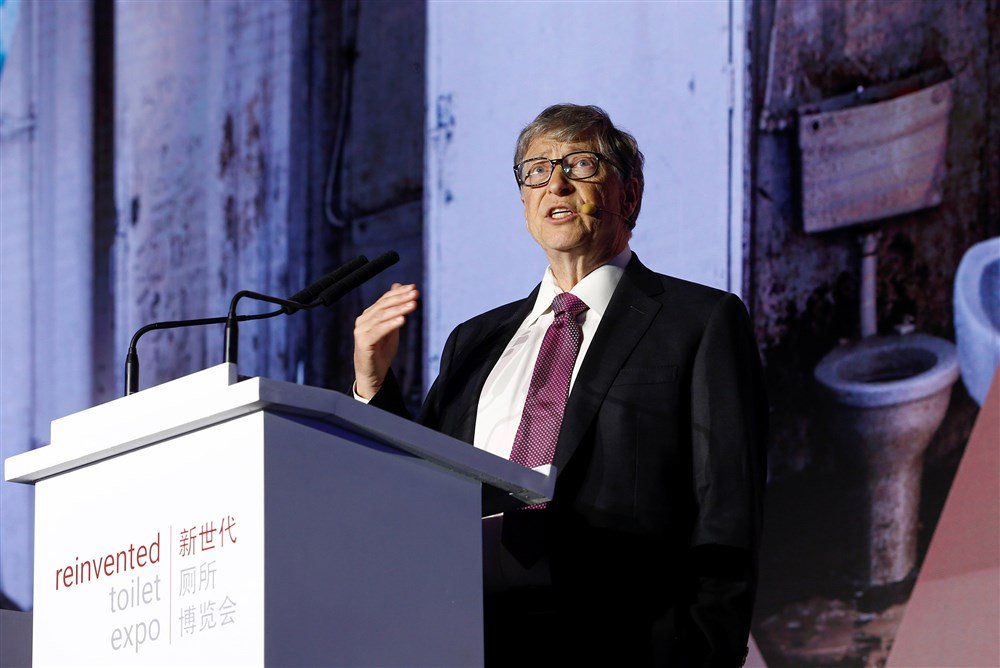
Microsoft co-founder Bill Gates unveiled a futuristic toilet Tuesday that doesn’t need water or sewers and uses chemicals to turn human waste into fertilizer.
It is the brainchild of research projects funded by the Bill and Melinda Gates Foundation, the world’s biggest private philanthropy organization.
There are multiple designs of the toilet but all work by separating liquid and solid waste, Reuters said.
“The current toilet simply sends the waste away in the water, whereas these toilets don’t have the sewer,” Gates said. “They take both the liquids and solids and do chemical work on it, including burning it in most cases.”
He compared the change from traditional toilets to waterless models as similar to development in computing around the time he founded Microsoft in the mid-1970s.
“In the way that a personal computer is sort of self-contained, not a gigantic thing, we can do this chemical processing at the household level,” he said.
Poor sanitation kills half a million children under the age of five annually and costs $ 200 billion a year in healthcare costs and lost income worldwide, according to the foundation.
Gates’ foundation has committed roughly $ 200 million to the toilet project and expects to spend the same amount again before the toilets are viable for widespread distribution.
During a speech at an event in Beijing, Gates held up a clear jar of human faeces to illustrate the importance of improving sanitation.
“It’s a good reminder that in (the jar) there could be 200 trillion rotavirus cells, 20 billion Shigella bacteria, and 100,000 parasitic worm eggs,” he said.
Gates said the next step for the project is to pitch the concept to manufacturers, saying he expects the market for the toilets to be over $ 6 billion by 2030.
The billionaire also lauded the globalized and free trade systems that made the toilet technology possible.
“I honestly believe trade allows every country to do what it’s best at,” he told Reuters in an interview. “So when I talk about components of this toilet being made in China, others in Thailand, others in the United States, you really want to be bringing together all of that IQ so that you’re getting that combination.”
Sourced From: Tribune

